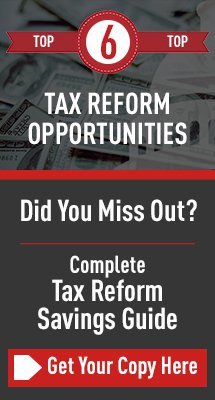 The Tax Cuts and Jobs Act permanently eliminated deductions for most business-related entertainment expenses paid or incurred after 2017. For example, you can no longer deduct 50% of the cost of taking clients out for a round of golf.
The Tax Cuts and Jobs Act permanently eliminated deductions for most business-related entertainment expenses paid or incurred after 2017. For example, you can no longer deduct 50% of the cost of taking clients out for a round of golf.
However, questions have lingered about whether certain expenses can still be deducted after the TCJA. For example, can you deduct 50% of the cost of a business-related meal under current law — or would that now be considered a totally nondeductible entertainment expense?
Recent proposed regulations from the IRS help clarify matters. Here's what business owners should know.
Defining Entertainment
 For purposes of the TCJA's general deduction disallowance rule, what is considered an entertainment expense? The term "entertainment" means any activity that's generally considered to constitute entertainment, amusement or recreation. Examples include entertaining at bars, theaters, country clubs, golf and athletic clubs, and sporting events. Hunting, fishing and spa trips also would qualify as entertainment.
For purposes of the TCJA's general deduction disallowance rule, what is considered an entertainment expense? The term "entertainment" means any activity that's generally considered to constitute entertainment, amusement or recreation. Examples include entertaining at bars, theaters, country clubs, golf and athletic clubs, and sporting events. Hunting, fishing and spa trips also would qualify as entertainment.
Entertainment does not include activities that may satisfy personal, living or family needs of an individual but that are clearly not regarded as constituting business-related entertainment. Examples of these expenses include an employer providing hotel lodging for employees who are traveling on business. On the other hand, providing a hotel room or automobile to an employee who's on vacation would constitute personal entertainment of the employee and would, therefore, be subject to the disallowance rule.
The proposed regs dismiss arguments that the term "entertainment" refers only to entertainment of others or that an expenditure for entertainment can be characterized as an advertising or public relations expense that's not subject to the disallowance rule. The guidance also clarifies that the entertainment expense disallowance rule generally applies regardless of whether an expenditure for an entertainment activity is related to or associated with the conduct of the taxpayer's trade or business. However, in applying this principle, the taxpayer's trade or business is considered.
For example, a theatrical performance would generally be considered entertainment. But that wouldn't be the case for a professional theater critic who's attending a performance in his or her professional capacity. The critic could deduct 100% of the cost of the ticket as a business expense. Similarly, if a clothing manufacturer conducts a fashion show to introduce new products to a group of store buyers, the show wouldn't be considered entertainment. The clothing manufacturer could deduct 100% of the cost of the show.
READ MORE: That Golf Outing? It’s No Longer a Deductible Business Entertainment Expense
Combining Meals with Entertainment
For purposes of the general disallowance rule for entertainment expenses, the term "entertainment" doesn't include food or beverages unless two conditions are met:
- The food or beverages are provided at or during an entertainment activity.
- The costs of the food or beverages aren't separately stated.
Specifically, to be deductible, amounts paid for food and beverages provided during an entertainment activity must be purchased separately from the entertainment. Alternatively, food and beverage costs may be deductible if they're separately stated on a bill, invoice or receipt that reflects the venue's usual selling price for such items if they were purchased separately from the entertainment or the approximate reasonable value of the items.
If the venue doesn't segregate food and beverage costs, a taxpayer can't use a do-it-yourself allocation of costs between the entertainment and the food or beverages. In this situation, the entire cost is treated as a nondeductible entertainment expense.
Other Business-Related Meals
The new proposed regulations also address the treatment of so-called "business meals," as well as meals while traveling on business. In general, 50% of the cost of such meals can be deducted, as before the TCJA. These costs include the cost of food and beverages, along with any delivery fees, tips and sales tax.
READ MORE: Important Meals & Entertainment Deduction Changes for McDonald's Franchisees
Business Meals: Taxpayers can still generally deduct 50% of business meal expenses under the TCJA, as under prior law. However, no deduction is allowed for any food or beverages provided by the taxpayer or an employee of the taxpayer to another person or persons unless three conditions are met:
- The expense isn't lavish or extravagant under the circumstances.
- The taxpayer (or an employee of the taxpayer) is present at the furnishing of such food or beverages.
- The food or beverages are provided to a business associate.
The term "business associate" means a person with whom the taxpayer could reasonably expect to engage in the active conduct of the taxpayer's trade or business. Examples of business associates would include established or prospective:
- Customers,
- Clients,
- Suppliers,
- Employees,
- Agents,
- Partners, and
- Professional advisors.
Since employees qualify as business associates, the 50% deduction rule applies to meals where both employees and nonemployee business associates are in attendance. A business meal can potentially occur preceding or during an entertainment activity.
Meals While Traveling on Business: The general rule is that 50% of the cost of meals while traveling on business can still be deducted under the TCJA, as under prior law. The longstanding rules for substantiating such meal expenses still apply.
The new proposed regulations also reiterate the longstanding rule that no deductions are allowed for meal expenses incurred for spouses, dependents or other individuals accompanying the taxpayer on business travel (or accompanying an officer or employee of the taxpayer on business travel), unless the expenses would otherwise be deductible by the spouse, dependent or other individual.
For example, meal expenses for the taxpayer's spouse would be deductible if the spouse works in the taxpayer's unincorporated business and accompanies the taxpayer for legitimate business reasons.
Effective Date for Proposed Regs
Until final regulations are issued, taxpayers can rely on the guidance in the new proposed regulations for the federal tax treatment of business-related entertainment expenses and food and beverage costs that are paid or incurred after December 31, 2017. Feel free to contact us with any questions or for personalized assistance.
© 2020





